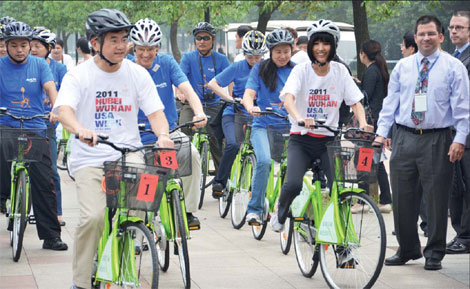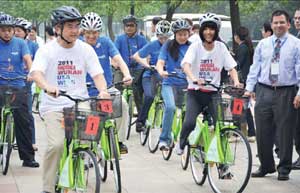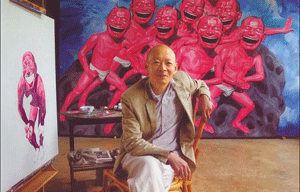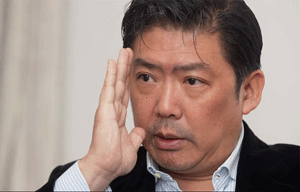More than just family ties
Updated: 2011-10-14 08:54
By Meng Jing and Guo Rui (China Daily)
|
|||||||||
|
Gary Locke, the US ambassador to China, led a delegation to Wuhan, Hubei province, late last month to try to attract Hubei companies to invest in the US. Provided to China Daily |
US envoy chips in to help companies on hard sell as Wuhan businesses step up outbound moves
It is not often that diplomats and visiting dignitaries include Wuhan on their China itinerary. So when Gary Locke, the US ambassador to China, chose Wuhan as his first port of call after taking up office in August, many people were surprised.
"My mother-in-law was born in Wuhan. She would be unhappy if I did not accord top priority for a Wuhan visit," Locke joked during the opening ceremony of the first ever Hubei Wuhan USA Week, a seven-day event to promote closer bilateral ties in trade and culture.
But the real reason that brought Locke to the Sept 22 event was bilateral trade rather than familial ties.
American policymakers are now wooing outbound investment from nations like China to stimulate the flagging economy and create more jobs.
Chinese direct investment in the US has more than doubled in recent times and supports over 10,000 jobs in the US. Direct investment by China in the US was around $5 billion last year and accounted for 0.6 percent of inbound foreign direct investment, according to data provided by Asia Society, a US-based organization that aims to improve ties between Asia and the US.
During his speech in Wuhan, Locke made frequent mention of Select USA, a program initiated by US President Obama to attract investment and increase employment.
"More than 1,000 US companies have their operations in Hubei and employ hundreds of thousands of local people, thereby giving a lift to the local economy. At the same time it also provides the right impetus for Hubei companies to invest in the US," says Locke.
Christian Murck, president of the American Chamber of Commerce in China, and other high-profile members of the US delegation were also seen impressing upon the Chinese delegates the virtues of investing in a developed economy like the US.
Outbound investment by Hubei companies has grown steadily in the past few years. Companies from Hubei have invested $536 million overseas in the past five years, an eight-fold growth over investments between 2001 and 2005.
According to data from the Hubei Department of Commerce, overseas investment from Hubei province reached a record high of $138 million in 2010. The number of companies in Hubei that are participating in outbound investment rose from 51 in 2005 to 135 in 2010.
Tang Hua, director of the trade and investment division of the Hubei commerce department, says that unlike companies in other provinces, Hubei firms have been slow starters in global moves.
"But what sets Hubei apart from the rest of the pack is the pattern of investment. Most of the other provinces have turned to Asian economies, whereas Hubei companies are more US-centric in their investments," he says.
Wuhan Humanwell Healthcare Group, a pharmaceutical company from Hubei, recently increased its investment in the US after its first investment in 2008.
The company increased its investment in the New Jersey-based joint venture Puracap Pharmaceutical LCC by another $15 million after an initial investment of $10 million in December 2008.
"The US is one of the largest markets in the world and we have an excellent team there to help us build the sales network. We also have the advantage of producing low-cost products in China," Liu Yi, vice-president of Humanwell, says.
His company has also invested around 150 million yuan ($23.5 million, 17.3 million euros) on a new production base in Wuhan for future export to the US.
"With the help of our team in the US, I think we can get FDA approval next year for our Wuhan base. We anticipate sales from the US to contribute some 500 to 600 million yuan to our annual revenue," Liu says. The company is aiming for 10 billion yuan in revenue by the end of 2015, compared with 2 billion yuan in 2010.
Liu says that despite the higher operating costs, his company sees immense potential in the US markets over the long term.
Fred Armstrong, mayor of Columbus, Indiana, and one of the members of the visiting US delegation, feels that China is definitely ready for more overseas investment deals.
"I have been traveling to China at least once a year since 1996. Back then I felt that China was not yet ready for global strides," Armstrong says.
Though he closed no deal during his latest visit to Wuhan, he feels that such interactions are important to cultivate potential investors.
"Patience is a virtue. It takes time to find compatible investors. We want to find investors who share some similarities with our city.
"We have a strong industrial base and big companies in the pharmaceutical business. We want to find investors in these particular arenas, so that we can help them make money in our city and create a win-win outcome for both sides," Armstrong says.









